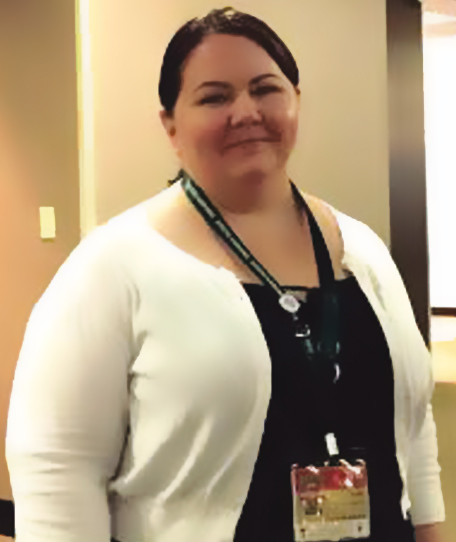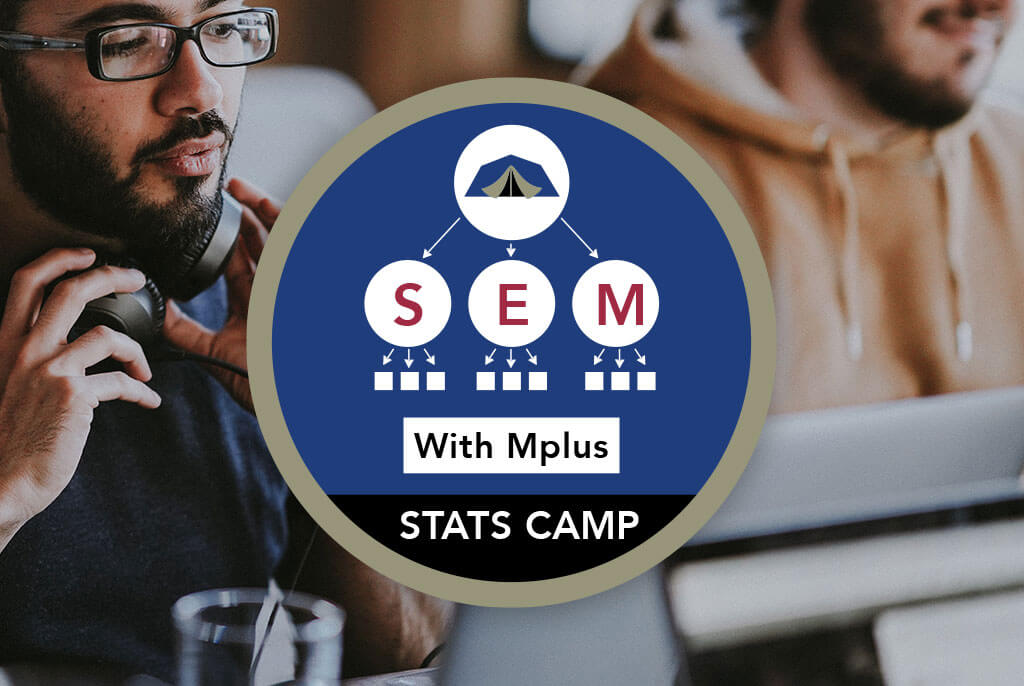IN PERSON – 5-day Statistics Short Course
Seminar Overview:
An introductory 5-day training course on using Mplus Structural Equation Modeling.
More and more researchers in the social and behavioral sciences use, or want to use, Mplus to analyze their structural equation models. This Stats Camp course is a 5-day hands on workshop using Mplus.
Seminar Topics:
The five-day training institute on SEM with Mplus will enable participants to:
- Brief review of Structural Equation modeling (SEM)
- Preparing and reading data into Mplus
- Model specification and dealing with defaults
- Procedures for fitting and testing Structural Equation Modeling (SEM) models (regression, path analysis, multiple groups, moderation ) in Mplus
- Testing mediation (bootstrapping)
- How to fit longitudinal models (Panel vs Growth curve models)
Note: This course will focus primarily on multivariate normal data that meets the assumptions of maximum likelihood estimation although other estimators available in Mplus will be briefly discussed.
Seminar Description:
The course starts with a brief review of structural equation modeling with emphasis on the specific way Mplus is used to specify and estimate models. We will also discuss some ways to deal with warnings and error messages. Next, we work with model specification and comparisons, multigroup models, DIF testing, moderation, and how to deal with Mplus defaults. We continue with testing predictive hypotheses and mean differences. Then, we will cover more advanced topics related to longitudinal data along with its additional assumptions and how to fit longitudinal SEM models in Mplus (e.g. how to specify longitudinal panel models, growth curve models, and how to test for mediation). The last day provides time for an additional topic based on camper requests (i.e. MLM, Power Analysis, etc.). The available choices of different estimation methods and statistical tests are also discussed.
On each day, the morning session consists of mini-lectures and examples, and the afternoon session is a computer lab where the topics of the morning are applied on example data. There will also be time to work on your own data and get feedback on your models. Bringing your own data is a plus for you, but definitely not a requirement for this course as we will have plenty of examples.
Participants from a variety of fields—including psychology, education, human development, public health, prevention science, sociology, marketing, business, biology, medicine, political science, and communication—will benefit from the course.
On the first day of class you will receive an electronic copy of all course materials, including lecture slides, practice datasets, software scripts, relevant supporting documentation, and recommended readings. You will also have access to a video recording of the course.
Instructor: Elizabeth Grandfield, Ph.D.

Elizabeth received her Ph.D. in Quantitative Psychology at the University of Kansas. She is currently an Assistant Professor in the Department of Methodology and Statistics at Utrecht University in the Netherlands. Her research focuses on evaluating …measurement invariance with an emphasis in longitudinal designs. In areas of applied research, Elizabeth has been involved in longitudinal children studies at Juniper Gardens as well as a national nursing study at Kansas University Medical Center, both in Kansas City. She also received the 2011 Multivariate Software Award, presented by Peter Bentler and Eric Wu. Elizabeth has been involved in Stats Camp since 2012.
APA Continuing Education Credits:
Please contact us for the exact # of Continuing Education Credits. Stats Camp Foundation is approved by the American Psychological Association to sponsor continuing education for psychologists. Stats Camp Foundation maintains responsibility for this program and its content.
Seminar Includes:
Materials, downloads, recorded course video viewable for up to one year.



